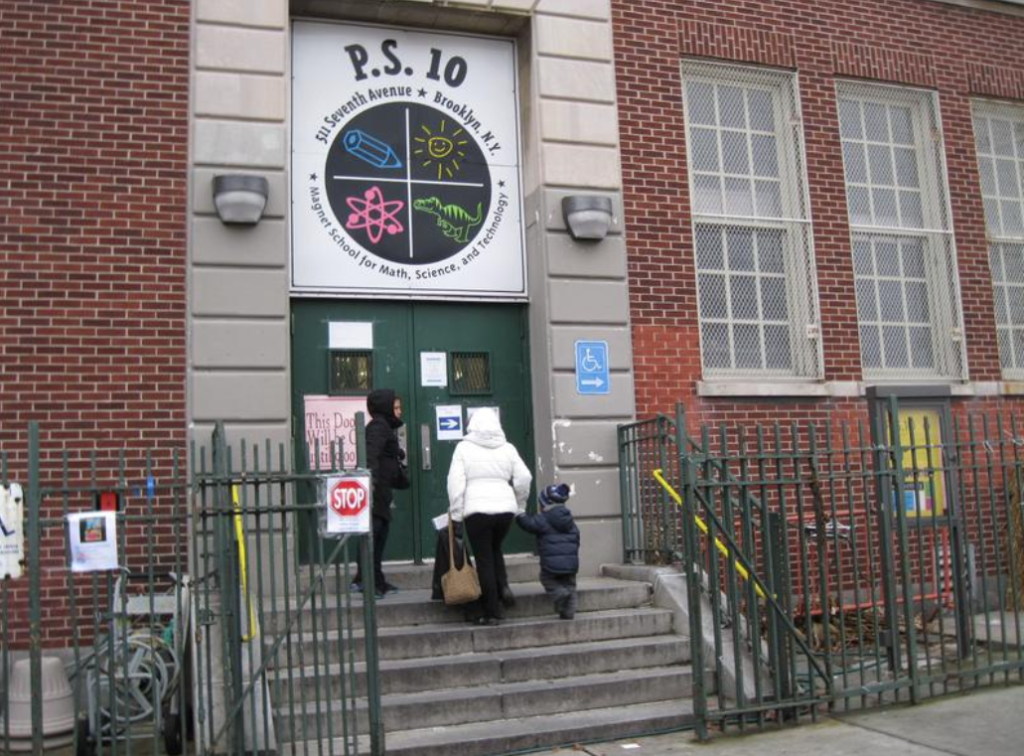 Editor’s note: This commentary from writer, lawyer and legal historian Natalie Wexler appeared recently on forbes.com. You can listen to a podcast Step Up For Students president Doug Tuthill recorded with Wexler here.
Editor’s note: This commentary from writer, lawyer and legal historian Natalie Wexler appeared recently on forbes.com. You can listen to a podcast Step Up For Students president Doug Tuthill recorded with Wexler here.
Bowing to longstanding pressure, New York City’s outgoing mayor has announced that the city will eliminate its gifted-and-talented classes. But without fundamental changes to curriculum and instruction, that move is unlikely to achieve its goal of making the system more equitable.
For years, Mayor Bill de Blasio has faced calls to dismantle the city’s extensive programs for students who score high on tests intended to measure academic aptitude, beginning at the tender age of 4. Critics have charged that the programs, which enroll disproportionate numbers of white and Asian students, are racially discriminatory.
The criticism is part of a broader push to dismantle selective admissions tests in other parts of the country as well, extending beyond the K-12 system to higher education.
Now, with only months left in his tenure, de Blasio has taken what appears to be bold action: a plan to replace gifted classes with what the New York Times describes as “a program that offers accelerated learning to all students in the later years of elementary school.”
Details are scarce, but the new model, dubbed “Brilliant NYC,” would also provide training for all of the system’s roughly 4,000 kindergarten teachers to deliver accelerated instruction – either to all 65,000 kindergarteners, according to one account, or just to those who “need accelerated learning within their general education classrooms.”
To continue reading, click here.
Editor’s note: This is our second installment of “blog stars,” a compilation of thoughtful material from other ed blogs. If I missed something good, by all means let me know at rmatus@stepupforstudents.org.
Jay P. Greene's Blog: Much to Learn About Vouchers Rhee Still Has
 Michelle Rhee’s faith in regulation is odd. The public school system is super-heavily regulated with laws and policies streaming down from the federal, state and local levels. Despite all of that, much of the system performs at a tragically poor level. That of course is not to say that vouchers should have no regulation, but the right level of regulation is not “heavy.”
Michelle Rhee’s faith in regulation is odd. The public school system is super-heavily regulated with laws and policies streaming down from the federal, state and local levels. Despite all of that, much of the system performs at a tragically poor level. That of course is not to say that vouchers should have no regulation, but the right level of regulation is not “heavy.”
Rhee also places far too much weight on the results of standardized test and gives far too little deference to the judgment of parents. Parents make decisions about schools for a large variety of reasons- including things like school safety, peer groups and the availability of specialized programs. In addition to missing the whole point about school choices being multifaceted with parents best able to judge all the factors, individual test scores bounce around from year to year, they often take a temporary hit when a child transfers and adjusts to a new school.
The notion of having program administrators looking at the math and reading tests and deciding to cast children back to their ‘failing neighborhood school’ is very problematic. Pity the poor voucher program apparatchiks who have to drag children back to a public school where they had been continually bullied because they had the flu on testing day. Pity the children more. The subject of what to do about poorly performing private schools in a choice system is a complex topic and opinions vary widely. Rhee’s proposed solution however does not begin to capture this complexity. Full post here.
The Blog, Huffington Post: Are Democrats Wrong to Blame Teachers Unions?
But why are teachers unions so much more successful than other unions? The answer is simple: public schools lack both competitors and paying customers, eliminating the checks and balances on union demands that exist in the private sector. A business whose unionized workers drive up costs without raising quality loses customers and may have to lay off workers or even shut down. Union success is thus self-regulating. But if, as a parent, you don't like the way your local district runs its schools, you have nowhere else to turn -- not without moving or paying for a private school. And as a taxpayer, if your local schools mismanage your tax dollars, you can't send those dollars anywhere else. That's why public schooling's inflation-adjusted per-pupil spending has more than doubled in the past four decades despite stagnating or declining academic outcomes: revenues don't depend on satisfying customers.
That's not the unions' fault. (more…)